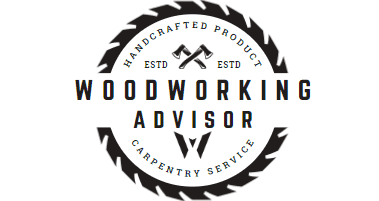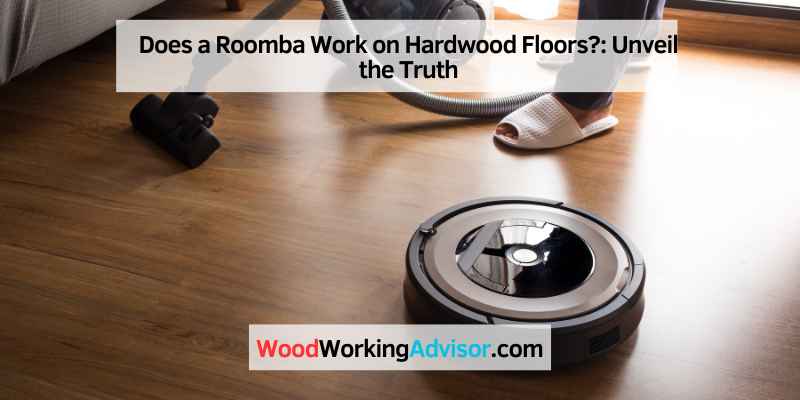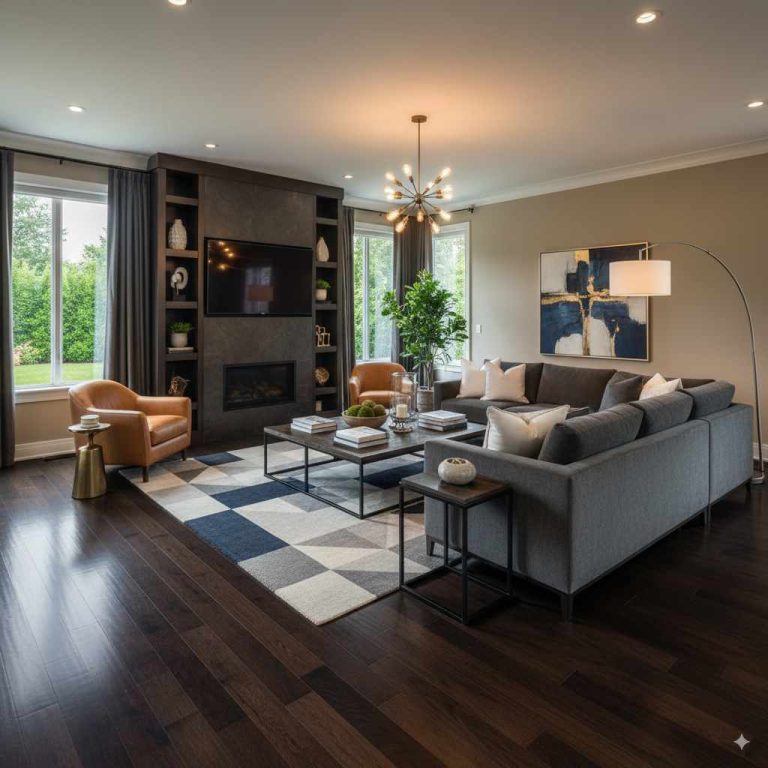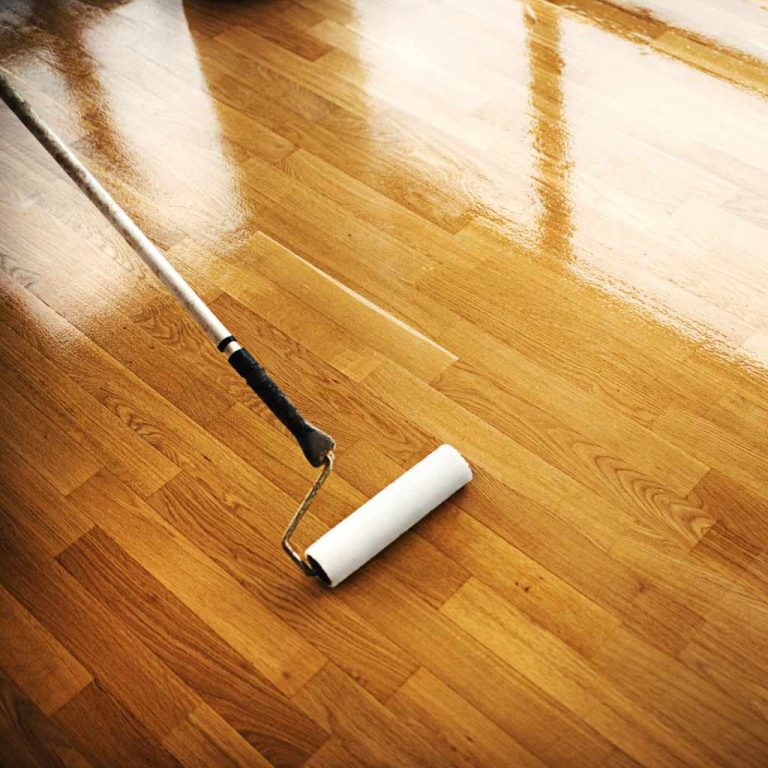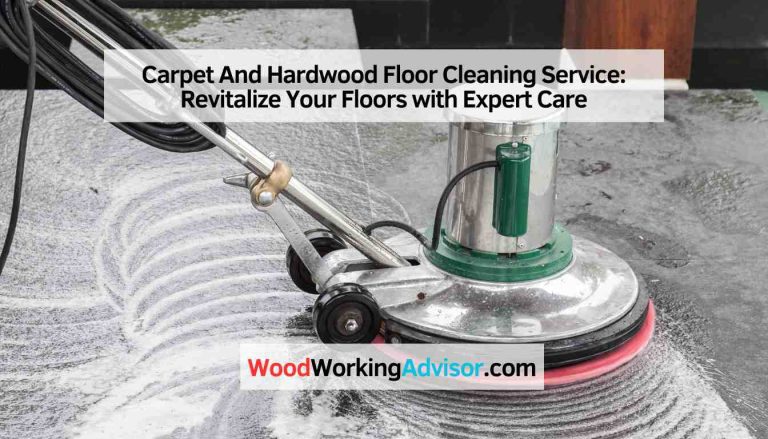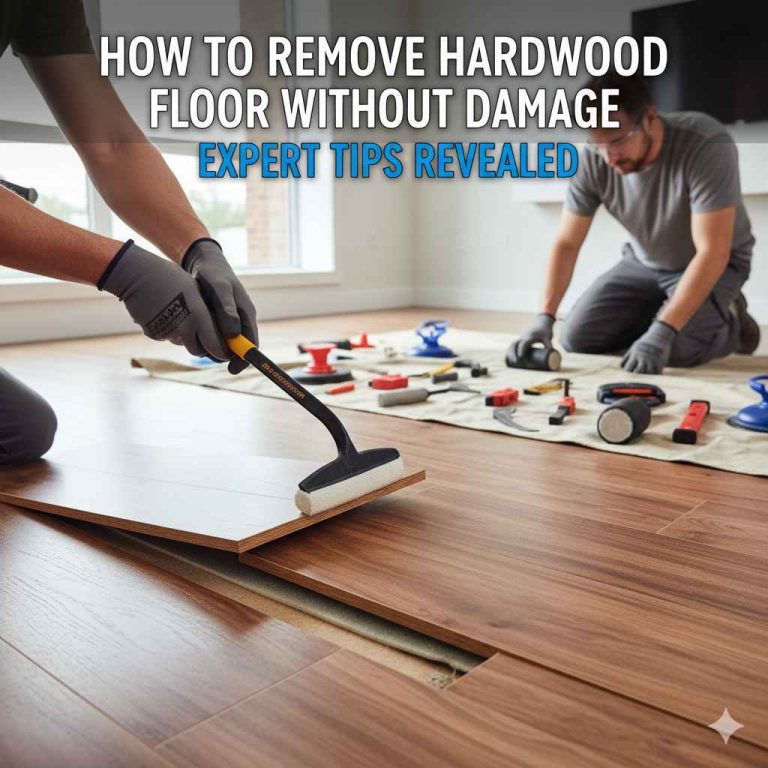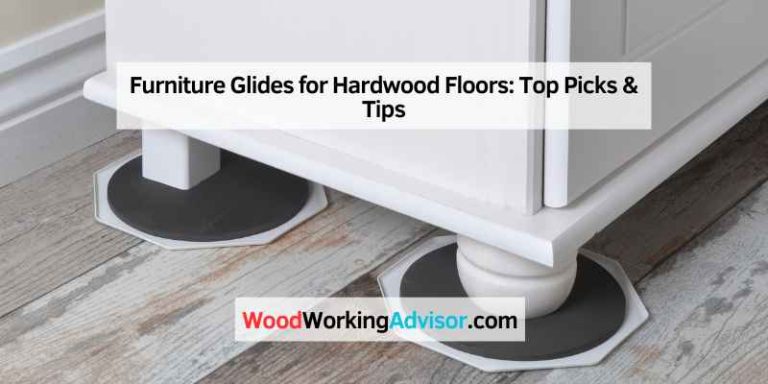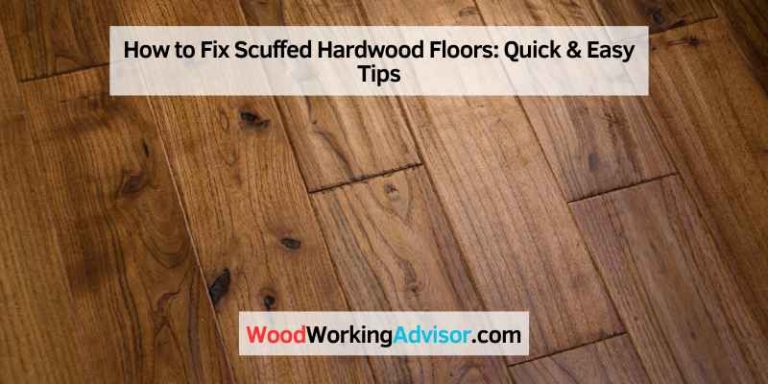Does a Roomba Work on Hardwood Floors?: Unveil the Truth
Yes, a Roomba works on hardwood floors, especially on sealed hardwood floors with a protective layer of sealant. It’s safe for such surfaces, but avoid using it on worn finish or bare wood.
Using a Roomba on hardwood floors is a convenient way to keep them clean and free of debris. The robotic vacuum’s automated cleaning capabilities make it a popular choice for homeowners with hardwood flooring. However, it’s important to ensure that the hardwood floors are properly sealed to prevent any potential damage.
Regular use of a Roomba can help maintain the cleanliness of hardwood floors, although deep cleaning and maintenance are still necessary. Overall, a Roomba can be an effective and time-saving tool for keeping hardwood floors in top condition.
Introduction To Roomba On Hardwood Floors
Roomba, the popular robotic vacuum cleaner, has become a staple in many households. Its ability to autonomously navigate and clean floors has revolutionized home maintenance. But does a Roomba work on hardwood floors? Let’s explore this question and delve into the first impressions and key features for hardwood surfaces.
First Impressions
Upon introducing a Roomba to hardwood floors, the first impression is its sleek and compact design. The device seamlessly glides across the smooth surface, displaying an impressive level of agility. Its ability to maneuver around furniture and tight corners is particularly noteworthy. Moreover, the quiet operation ensures minimal disruption to the household.
Key Features For Hardwood Surfaces
When it comes to hardwood surfaces, the Roomba boasts several key features tailored to optimize cleaning efficiency. The device’s gentle yet thorough cleaning action ensures that the hardwood floors remain pristine without any risk of damage. Additionally, its advanced sensors enable it to detect dirt and debris, ensuring comprehensive coverage of the entire floor space. Furthermore, the device’s anti-scratch brushes and rubberized wheels provide peace of mind, as they prevent any potential damage to the hardwood surface.
How Roomba Handles Hardwood Floors
When it comes to cleaning hardwood floors, the Roomba is a popular choice for many households. Let’s delve into how this robotic vacuum handles hardwood floors effectively.
Performance Analysis
Roomba’s performance on hardwood floors is impressive, thanks to its advanced sensors and intelligent navigation system.
Pickup And Cleaning Tests
- The Roomba excels in picking up dust, dirt, and debris on hardwood surfaces.
- Its efficient suction power ensures a thorough cleaning process.
- The robot’s brushes are gentle on hardwood floors, preventing scratches.
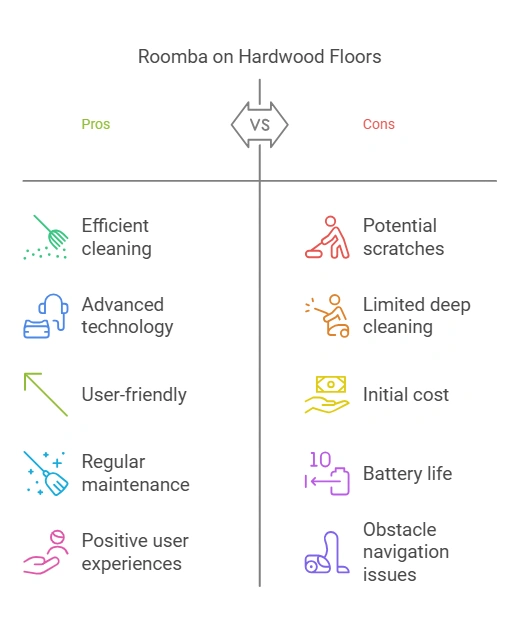
Roomba’s Technology For Floor Care
Roomba’s advanced technology ensures effective cleaning on hardwood floors with sealed finishes. It navigates seamlessly, avoiding scratches and providing thorough cleaning without damaging the surface. Effortlessly maintaining the shine and cleanliness of your hardwood floors, Roomba is a reliable choice for floor care.
When it comes to cleaning hardwood floors, Roomba has become a popular option for homeowners. But does a Roomba work on hardwood floors? The answer is yes, as long as the hardwood floors are sealed. Roomba’s advanced technology for floor care ensures that it can navigate and clean your hardwood floors effectively. In this article, we’ll take a closer look at Roomba’s technology for floor care, focusing on its navigation and obstacle avoidance, as well as its auto-adjusting cleaning system.
Roomba’s navigation technology allows it to move around your hardwood floors with ease. It uses sensors to detect obstacles and navigate around them, ensuring that it doesn’t bump into furniture or other objects in your home. Roomba’s technology also allows it to detect stairs and other drop-offs, preventing it from falling down and getting damaged.
Auto-adjusting Cleaning System
Roomba’s auto-adjusting cleaning system ensures that it can clean your hardwood floors effectively. The system automatically adjusts the height of the cleaning head to match the surface of your floors, ensuring that it can pick up dirt and debris without damaging the hardwood. Additionally, Roomba’s technology allows it to detect areas that are particularly dirty and spend more time cleaning those areas.
In conclusion, Roomba’s technology for floor care makes it an effective option for cleaning hardwood floors. Its navigation and obstacle avoidance technology ensures that it can move around your home without damaging your furniture or falling down stairs, while its auto-adjusting cleaning system ensures that it can clean your floors effectively without causing any damage. So if you’re looking for an efficient and effective way to clean your hardwood floors, a Roomba may be the perfect solution.
Comparing Roomba Models For Hardwood
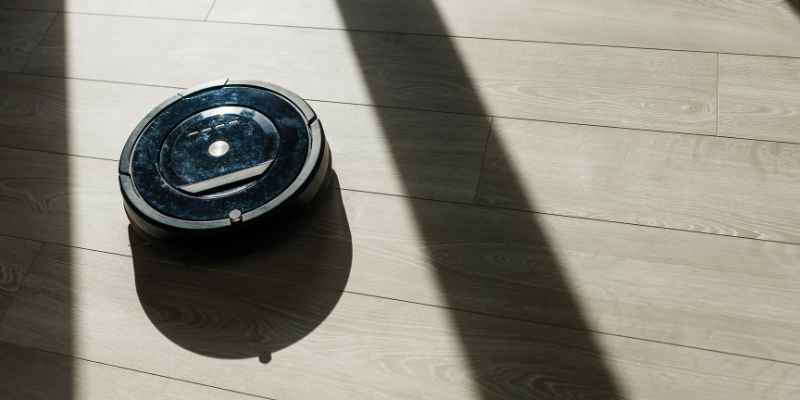
Comparing Roomba models for hardwood floors is essential to ensure optimal performance. Roombas are suitable for hardwood floors with a protective sealant, but caution is advised for floors with worn finish or bare wood. Choose a Roomba model that navigates smoothly and effectively cleans hardwood surfaces.
Best Models For Hardwood Floors
When it comes to finding the best Roomba models for hardwood floors, there are several options to consider. These models are specifically designed to effectively clean hardwood surfaces, without causing any damage or scratches. Here are some of the top models that are highly recommended for hardwood floor cleaning:
Feature Comparison
| Roomba Model | Key Features |
|---|---|
| Roomba 980 |
|
| Roomba i7+ |
|
| Roomba 675 |
|
These models offer a range of features that make them ideal for hardwood floor cleaning. From powerful suction to advanced navigation systems, you can find a model that suits your specific needs and preferences.
It’s important to note that while all Roomba models are safe to use on sealed hardwood floors, it’s recommended to check the condition of your floor surface before using the robot. Ensure that the floor has a protective layer of sealant and there are no worn finish, bare wood, or unsealed joints. This will help prevent any potential damage during the cleaning process.
With the right Roomba model for hardwood floors, you can enjoy a clean and pristine floor without any scratches or damage. Choose the model that fits your requirements and start enjoying the convenience of automated cleaning on your hardwood floors.
Maintaining Your Hardwood Floors With Roomba
Maintaining your hardwood floors with a Roomba is a convenient and efficient way to keep them clean. A Roomba is designed to work effectively on hardwood floors, helping to remove dust, dirt, and pet hair with ease, keeping your floors looking pristine without the need for manual vacuuming.
Regular Maintenance Tips
Regular maintenance is essential to keep your hardwood floors looking their best when using a Roomba. Here are some tips to help you maintain your hardwood floors effectively:
- Ensure that your Roomba is equipped with a soft brush or bristle brush specifically designed for hardwood floors. This will help prevent any potential scratching or damage to the surface.
- Regularly inspect your hardwood floors for any signs of wear, such as scratches or scuffs. If you notice any, consider using felt pads or furniture protectors on the legs of your furniture to minimize the risk of further damage.
- Keep your hardwood floors free from dirt, dust, and debris by regularly sweeping or vacuuming them with your Roomba. This will prevent any particles from scratching the surface or getting embedded in the wood grain.
- Avoid using harsh cleaning products or excessive moisture when cleaning your hardwood floors. Instead, opt for a pH-neutral cleaner specifically formulated for hardwood floors, and use a damp cloth or mop to gently clean the surface.
- Consider placing rugs or mats in high-traffic areas to protect your hardwood floors from excessive wear. Make sure to use rugs with non-slip backing to prevent any accidents.
Deep Cleaning Recommendations
While regular maintenance with your Roomba is effective for day-to-day cleaning, deep cleaning your hardwood floors periodically is also important. Here are some recommendations for deep cleaning your hardwood floors:
- Start by thoroughly sweeping or vacuuming your hardwood floors with your Roomba to remove any loose dirt and debris.
- Using a damp mop or microfiber cloth, clean the surface of your hardwood floors with a specialized hardwood floor cleaner. Be sure to follow the manufacturer’s instructions for the specific cleaner you are using.
- Avoid excessive moisture and ensure that the mop or cloth is only slightly damp, as excessive moisture can cause damage to the wood.
- Pay special attention to areas with stains or spills, using a gentle scrubbing motion to remove any stubborn marks. Avoid using abrasive scrub brushes or harsh chemicals that can damage the hardwood surface.
- Once you have finished deep cleaning, allow your hardwood floors to air dry completely before walking on them or placing furniture back in the room.
By following these regular maintenance tips and deep cleaning recommendations, you can ensure that your hardwood floors remain in excellent condition while using a Roomba for cleaning. Remember to always prioritize the care and protection of your hardwood floors to keep them looking beautiful for years to come.
Roomba’s Impact On Hardwood Floor Durability
Many homeowners wonder about the impact of using a Roomba on their hardwood floors. It’s essential to address concerns about potential damage and the steps that can be taken to protect the floors.
Scratch And Damage Assessment
It’s natural to be concerned about scratches and damage caused by a Roomba on hardwood floors. The rotational movement of the brushes and the weight of the robot can lead to surface abrasions and minor dents, especially on softer wood types.
Protective Measures
There are several protective measures that can be implemented to minimize the risk of damage to hardwood floors. Using felt pads under furniture legs, regular cleaning of the Roomba’s wheels, and ensuring the floor is free of debris can help prevent scratches and dents.
Real User Experiences
Roomba is safe to use on hardwood floors that have a protective sealant. However, it is important to check for any worn finish, bare wood, or unsealed joints before using the robot. Avoid using it if any of these conditions exist to prevent damage to the floor.
Positive Outcomes
Users have reported efficient cleaning on hardwood floors with Roomba, leaving a polished surface.
Challenges Faced
Some users mentioned occasional scratching on the hardwood floors by Roomba, requiring extra caution.
Final Verdict: Is Roomba A Good Fit For Hardwood?

Roomba is a great fit for hardwood floors, especially if they have a protective sealant. However, it’s important to avoid using it on floors with a worn finish, bare wood, or unsealed joints. With proper care, Roomba can effectively clean your hardwood floors without causing any damage.
Summarizing The Findings
Roomba is safe for sealed hardwood floors with protective sealant. Ensure no bare wood or worn finish is present.
Recommendations And Tips
- Inspect your hardwood floors for any imperfections before using Roomba.
- Regularly maintain and clean your Roomba to prevent scratches on hardwood.
- Consider a model specifically designed for hard floors for optimal performance.
Frequently Asked Questions
Is It Okay To Use A Roomba On Hardwood Floors?
Yes, it is safe to use a Roomba on hardwood floors that have been sealed with a protective layer of sealant such as polyurethane. However, you should inspect the floor surface for worn finish, bare wood, or unsealed joints before using the robot.
Do not use it if any of these conditions exist.
Does Roomba Work On Bare Floors?
Yes, Roomba works well on bare floors, especially sealed hardwood floors with a protective layer like polyurethane. Avoid using it on worn finish, bare wood, or unsealed joints to prevent damage.
Can A Roomba Go From Carpet To Hardwood?
Yes, a Roomba can transition from carpet to hardwood floors seamlessly. It’s designed to adjust its cleaning method based on the surface it’s on.
What Is Best Robot Vacuum For Hardwood And Tile Floors?
The best robot vacuum for hardwood and tile floors is the Roomba. It is safe to use on sealed hardwood floors with a protective layer of sealant. However, do not use it on floors with a worn finish, bare wood, or unsealed joints.
The Roomba is also suitable for cleaning tile floors.
Conclusion
To sum up, Roomba is a great choice for cleaning hardwood floors that have been sealed with a protective layer of sealant. It’s important to inspect the floor surface for any signs of damage or wear before using the robot.
With its smart navigation and obstacle avoidance system, Roomba makes cleaning your hardwood floors effortless and hassle-free. Whether you have pets or just want to keep your floors clean, Roomba is a reliable and efficient option for hardwood floor cleaning.
